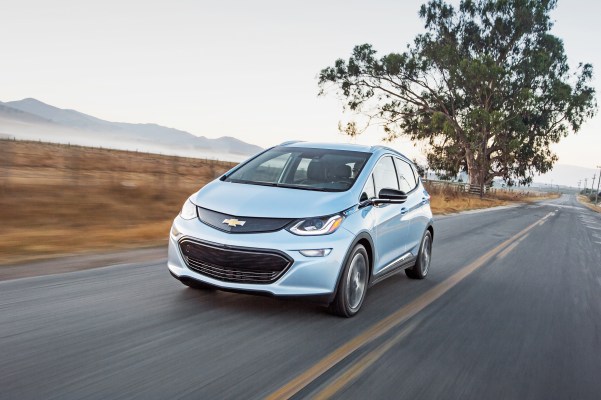Chevrolet’s new Bolt EV is a vehicle that Wired has dubbed “Tesla-walloping,” and its pricing seems like a direct shot at Tesla’s lineup, including the forthcoming Model 3, which is set to be the dedicated electric carmaker’s more “affordable” option. Chevrolet revealed specific pricing and trim details for the base model Bolt EV LT, which begins at $37,495 US and which drops to $29,995 with the maximum $7,500 federal government tax credit applied – just squeaking under the stated $30K post-credit ceiling Chevy has been touting for a while now.
The official price details are more or less just Chevrolet filling in the remaining digits for a $29,XXX.XX price-after-incentives we’d all generally come to expect, then, but we also now know what you get standard in that Bolt EV trim level in addition to an EPA-rated 238 mile range on a single charge (the Model 3’s base model range is currently set at 215 miles).
It also has a “Regen on Demand” steering wheel paddle, which is Chevy’s trademark tech for letting the driver slow the vehicle, and regenerate some battery power via friction at varying rates controllable right from the wheel. The regen paddle helps drivers looking to perfect a single pedal driving technique, which is possible in EVs like the Bolt where regenerative braking triggers as soon as you let your foot off the accelerator.
[gallery ids="1388940,1388942,1388943,1388944,1388945"]
Other standard features on the Bolt EV’s LT trim include a rear-vision camera, a large 10.2-inch touchscreen for infotainment control and Michelin self-sealing tires to counter minor perforations. On the top trim package, dubbed the Bolt EV Premier (that does sound fancier), you get everything that’s in the LT plus leather, front and rear in-seat heating, a surround camera and an in-set backup camera display in the rearview mirror. The Bolt with Premier trim has an MSRP of $40,905.
On paper, both the Model 3 and the Bolt EV have advantages over the other – the Model 3 will be priced at $35,000 to start pre-incentives, Tesla CEO Elon Musk has said, which represents a savings of $2,500 when compared to the Chevrolet. The Tesla will also have supercharger capabilities, which will mean faster fill-ups on the road. Tesla’s car will also manage 0-60 in six seconds or less, while the Bolt will do the same in under 6.5. Bolt has better range, however, and will probably have more interior space thanks to its hatchback design.
There’s one more thing about the Bolt that’s undeniably better than what the Model 3 can offer: it’s shipping date. Bolt EV goes on sale in “late 2016,” Chevrolet says, while the Model 3’s timeline has the first units going out in late 2017, with full production really only starting off in 2018.
